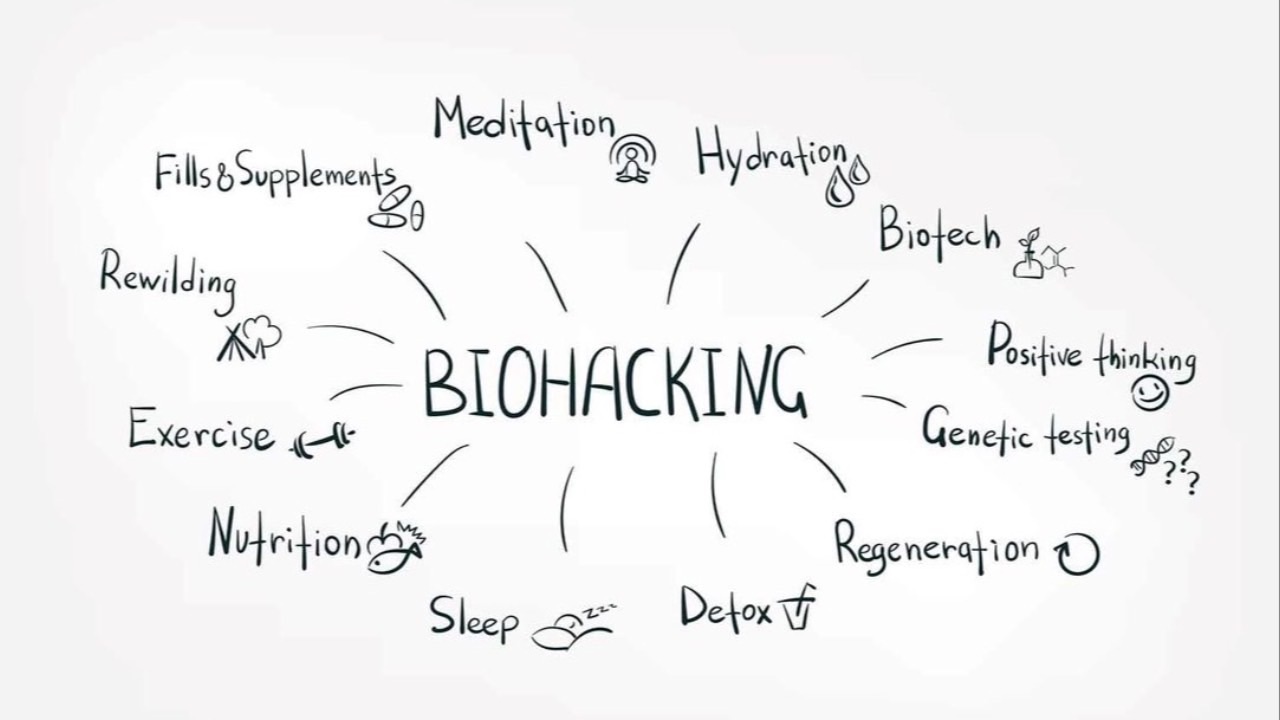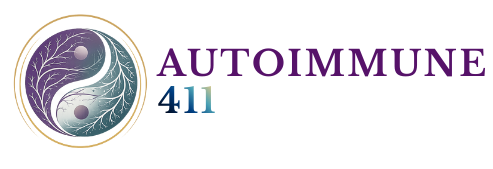
Biohacking: The Trendy Word That’s Been the Core of Autoimmune Healing All Along
💡 Spoiler Alert: You’ve probably been biohacking without even realizing it.
Let’s clear something up—biohacking isn’t just about influencers in ice baths or sipping mushroom lattes under red lights.
If you’ve been tracking your symptoms 📓, eliminating toxic products 🚫, testing for mold 🏠, or regulating your nervous system 🧘♀️—you’re already a biohacker. You just didn’t know you were trendy.
Truth is, over at Hashimoto’s 411, we’ve been biohacking long before the word ever made it to a podcast or product label.
And now, with Autoimmune 411 and the launch of Autoimmune 411 Academy, we’re putting structure and strategy behind that same mission—to help autoimmune warriors upgrade their health, one system at a time.
🧬 What Is Biohacking, Really?
Biohacking is the DIY science of understanding your body as a system and using food, tech, lifestyle, and testing to optimize how it works.
In other words: you change the inputs to improve the outputs.
But here’s the good news—you don’t need a $10,000 cryo chamber, a red-light bed, or 23 supplements lined up by breakfast. You just need to know where to start.
🔍 Why It Matters for Autoimmune Disease
When you have autoimmunity, your body is stuck in “attack mode.” It’s inflamed, exhausted, and confused. Biohacking tools help restore homeostasis—that sense of safety and balance your immune system craves.
Some simple, accessible hacks:
- 🌞 Morning Sunlight → resets circadian rhythm, lowers cortisol, and improves sleep.
- 🕶️ Blue-Light Blocking at Night → protects melatonin, hormones, and sleep cycles.
- 🧊 Cold Exposure → calms the vagus nerve and reduces inflammation.
- 🔥 Sweating (sauna or exercise) → supports detox when your liver and lymph are sluggish.
- 🍳 Protein-First Meals → stabilize blood sugar and lower inflammation.
- 📵 Reducing EMFs & Tech Overload → improve sleep and stress resilience.
- 🧘♀️ Nervous System Work → breathwork, vagus nerve stimulation, and trauma release.
📜 A Little History (Because Context Matters)
The term “biohacking” gained traction in the early 2000s thanks to Bulletproof Coffee’s Dave Asprey, but the philosophy dates back much further.
Take the Leptin Reset Diet from Dr. Jack Kruse:
- Morning sun
- Cold exposure
- Protein-focused breakfast
- No snacking
- Blue-light avoidance
Sound familiar? Those are today’s “biohacks.” And they’re the same strategies Hashimoto’s 411 has been teaching for over a decade.
🚫 Not Trend-Hopping — Real Healing
I’m not here to glamorize cold plunges while you’re stuck flaring in bed.
True autoimmune biohacking is intentional, layered, and realistic:
- You don’t detox a body that can’t poop. 💩
- You don’t fast through trauma.
- You don’t “optimize” a system stuck in survival mode.
You start where your body is—one system at a time.
✅ Bottom Line
Biohacking isn’t about chasing fads or collecting gadgets. It’s about taking your health back—on your terms.
If the traditional system told you “there’s nothing else to try,” biohacking says:
“Actually, there’s everything left to explore.”
And if you’ve ever opened your windows in the morning, eaten protein first to prevent a crash, taken a cold shower, swapped out toxic cleaners, or shut off your phone at night—you’ve already been biohacking.
So call it biohacking, body literacy, or just smart survival… but don’t stop now. Your immune system deserves the chance to finally exhale.
👣 Want the step-by-step SMART Path™ to autoimmune healing?
Inside Autoimmune 411 Academy, I walk you through every step of the SMART Path™ so you’ll understand why each one matters and in the correct sequence—empowering you to turn symptoms into signals, know what needs to be done next, and confidently vet practitioners, diets, protocols, and tests.
[→ Enroll Here]
💪 On the Frontlines with you,
Alice McDonnell
Founder and 20+ Year Veteran Patient Advocate
Autoimmune 411 ~ Hashimoto’s 411 ~ Autoimmune 411 Academy
🚨 Disclaimer: I’m not a medical professional. I’m sharing what I’ve learned through over two decades of research, patient feedback, and lived experience. This is for informational purposes only—always consult your healthcare provider before making changes to your health plan.

